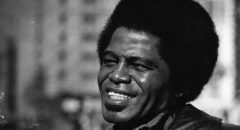
Eric ‘Eazy-E’ Wright died of AIDS on March 26th, 1995. The founding member of the legendary rap group NWA sent shockwaves through the industry with the announcement, made via his attorney, Ron Sweeney, during a press conference. Ten days later, he was gone.
In the statement, Ron read a message from Eazy-E: “I’m not saying this because I’m looking for a soft cushion wherever I’m heading.
But I’ve got thousands of young fans that have to learn about what’s real when it comes to AIDS. I’ve learned in the last week that this thing is real and it doesn’t discriminate. It affects everyone.” 10 days later, Eazy-E was gone.
This was more unsettling than any of the explosive lyrics he could’ve rapped in his songs. The all-powerful invincibility cloak he’d sheathed himself in suddenly fell due to a condition that few people truly understood, especially in the Black community.
What is AIDS?
According to the CDC, Black/African American people account for a higher proportion of new HIV diagnoses and people with HIV, compared to other races and ethnicities.
In 2018, Black/African American people accounted for 13% of the US population but 42% (16,002) of the 37,968 new HIV diagnoses in the United States and dependent areas.
HIV.gov defines HIV (human immunodeficiency virus) as a virus that attacks cells that help the body fight infection, making a person more vulnerable to other infections and diseases. It is spread by contact with certain bodily fluids of a person with HIV, most commonly during unprotected sex (sex without a condom or HIV medicine to prevent or treat HIV), or through sharing injection drug equipment.
If left untreated, HIV can lead to the disease AIDS (acquired immunodeficiency syndrome).
The human body can’t get rid of HIV and no effective HIV cure exists. So, once you have HIV, you have it for life.
However, it’s manageable through HIV medicine (called antiretroviral therapy or ART), people with HIV can live long and healthy lives and prevent transmitting HIV to their sexual partners.
In addition, there are effective methods to prevent getting HIV through sex or drug use, including pre-exposure prophylaxis (PrEP) and post-exposure prophylaxis (PEP).
First identified in 1981, HIV is the cause of one of humanity’s deadliest and most persistent epidemics.
How Do I Know If I Have HIV/AIDS?
According to HIV.gov, the only way to know for sure if you have HIV is to get tested and fortunately it’s simple. You can ask your health care provider for an HIV test.
Many medical clinics, substance abuse programs, community health centers, and hospitals offer them too. You can also buy a home testing kit at a pharmacy or online.
Visit HIV.org for more information.
BDO’s Black History of Health series is designed to show the correlation between the health of historical black figures and Black Americans today. Many of the health disparities we currently experience have been in our community for centuries. This series is meant to bring these conditions to the forefront and provide blacks with preventative and management steps to reduce these disparities and improve the overall health of the Black American community. It’s time to change the narrative.








